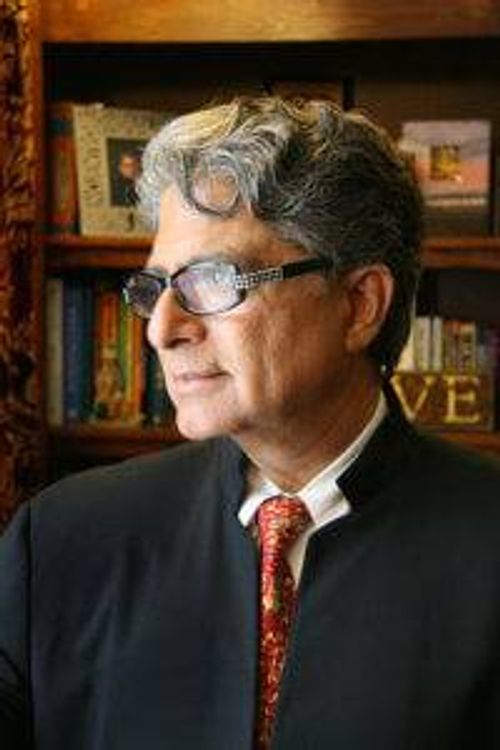Deepak Chopra's 6 Tips to Reduce Stress at Work
Over the long run, everyday stresses can be more harmful than a major stress
Do you have stress at work? You’re in good company. In CareerCast’s 2017 Job Stress Survey, 82 percent of workers said their jobs fall on the more stressful end.
Dr. Deepak Chopra may be able to help.
Chopra, the internationally known author, speaker and founder of Jiyo.com (a site on personal and social transformation), has taught everyone from Oprah to average people how to reduce stress. The first thing to remember, Chopra says, is that everyone is different. What works for one person may not work as well for another. That’s why, he says, it’s important to figure out what works for you and concentrate on doing it.
1. Just Breathe
That said, Chopra notes: “I think that one tip that works for anyone is to take a short breathing break. Just sit quietly and pay attention to your breath or do a deep breathing exercise. There are many apps right now that you can use to guide you with breathing exercises.”

2. Be 'In the Moment'
When you begin doing breathing exercises, they automatically make you be “in the moment.” Often, Chopra says, we are stressed because instead of concentrating on what we’re doing right now, we’re worrying about our jobs and our relationships or feeling threatened in some way. To reduce this stress means to stop these thoughts.
“Breathing is the beginning of what is called ‘mindfulness practice,’ which means to be mindfully aware of any activity you’re engaged in or even just observing yourself as you do the activity so your mind doesn’t wander,” explains Chopra. “If you’re at work, pay attention to what you’re doing — listen to the keys clicking on your computer keyboard or really pay attention to a conversation you’re having or information that you’re reading.”
3. Focus on One Thing at a Time
In our busy world, many people love to multitask because they believe it helps them get more done. According to Chopra, though, multitasking can actually make you feel worse.
“The conscious mind can only do one thing at a time. So when you think you’re multitasking, you’re actually switching from one thing to another very fast,” says Chopra. “For example, if I’m checking my text messages or my email and I’m speaking to you at the same time, I’m actually doing neither. I’m just switching from one to the other, and that messes up neural networks. In fact, it’s the one thing that gets worse with practice. The more you do it, the worse you get.”
So try to do just one thing at a time. It will be much less stressful.
4. Catch Some Zzzzzzz’s
Chopra believes getting enough sleep is another important way to reduce stress at work.
“Get your seven to nine hours, whatever fits you, but a minimum of seven hours of sleep, and you will naturally be less stressed in the morning,” Chopra says. “If you haven’t slept well, you’ll be irritable and even minor stressors will cause you a lot of stress.”
5. Take Time to Laugh
While you may not be able to find laugh time when you’re supposed to be working, try to do it during lunch or before or after work. Chopra recommends finding a five-minute cartoon on YouTube or watching old clips of Candid Camera — whatever is funny to you. “It’s a break when you laugh, and you’ll be surprised how easily it also breaks the stress,” he says. (If you decide to follow this tip while you’re on the job, be sure that what you’re watching is safe for work.)
6. Follow the STOP Rule
Everyday minor stresses are cumulative and can be more harmful to you than a major stress in your life over the long run. So if you’re getting annoyed about something minor at work, Chopra says, remember the STOP rule: S stands for Stop, T means take three breaths and smile, O stands for observe the sensations in your body (which brings you into the moment) and P means proceed with awareness.
“It’s like putting on the pause button. If you put this into practice and you get into the habit of doing this, your brain will create networks for repeating it, and you can break the stress cycle,” says Chopra.
Next Avenue Editors Also Recommend:


